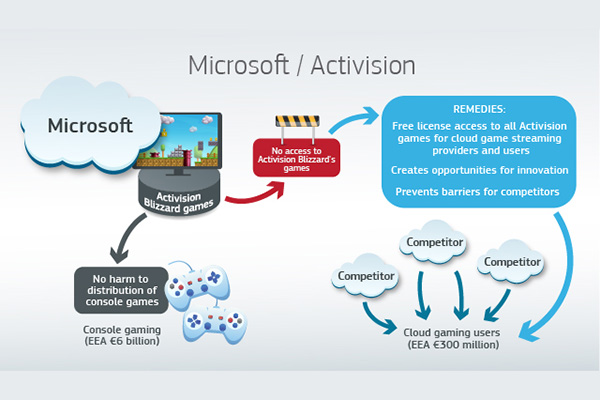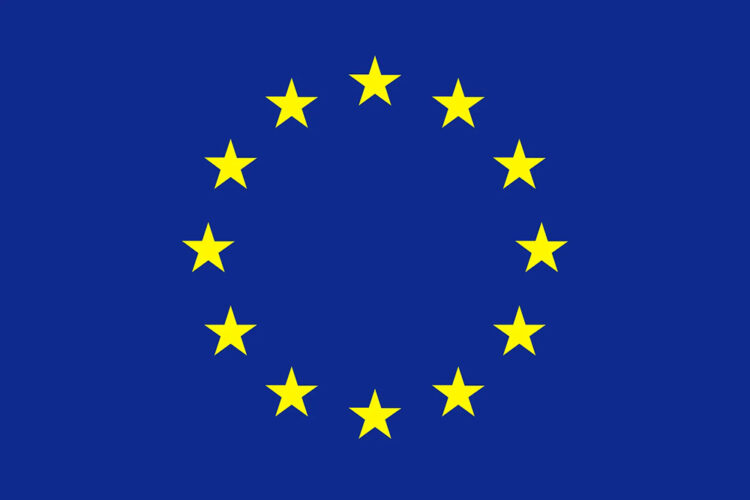While UK government regulators delivered a setback for Microsoft’s proposed $69B USD acquisition of Activision Blizzard at the end of April, the European Union’s European Commission has given the deal the greenlight, with certain conditions. The European Union approval is conditional on a number of factors including commitments already made by Microsoft.
Those commitments include giving European consumers who have purchased an Activision Blizzard title a (free) license to freely stream games on streaming platforms of their choice and a “corresponding free license to cloud game streaming service providers to allow EEA-based gamers to stream any Activision Blizzard’s PC and console games,” according to an announcement.

So how did the EC come to its conclusion? Here is what it said in its official announcement:
Microsoft would have no incentive to refuse to distribute Activision’s games to Sony, which is the leading distributor of console games worldwide, including in the European Economic Area (‘EEA’) where there are four Sony PlayStation consoles for every Microsoft Xbox console bought by gamers. Indeed, Microsoft would have strong incentives to continue distributing Activision’s games via a device as popular as Sony’s PlayStation.
Even if Microsoft did decide to withdraw Activision’s games from the PlayStation, this would not significantly harm competition in the consoles market. Even if Call of Duty is largely played on console, it is less popular in the EEA than in other regions of the world, and is less popular in the EEA within its genre compared to other markets. Therefore, even without being able to offer this specific game, Sony could leverage its size, extensive games catalogue and market position to fend off any attempt to weaken its competitive position.
Even without this transaction, Activision would not have made its games available for multi-game subscription services, as this would cannibalize sales of individual games. Therefore, the situation for third-party providers of multi-game subscription services would not change after the acquisition of Activision by Microsoft.
Further it said that, “Taking into consideration the feedback of the market, the Commission concluded that the proposed acquisition, as modified by the commitments, would no longer raise competition concerns and would ultimately unlock significant benefits for competition and consumers. The Commission’s decision is conditional upon full compliance with the commitments. Under supervision of the Commission, an independent trustee will be in charge of monitoring their implementation.”
The EU joins Saudi Arabia, Brazil, Serbia, Chile, Japan, South Africa, and Ukraine in giving the acquisition its blessing, leaving outliers in the United States (Federal Trade Commission, or FTC) and the UK (Competition & Markets Authority, or CMA).
For some expert analysis we highly recommend you read this story from Foss Patents on why the CMA’s ruling is an outlier, and the EC decision is the “lodestar” in this particular situation.
FOSS Patents notes that on Tuesday CMA Chair Marcus Bokkerink and CEO Sarah Cardell will be testifying before the UK UK Parliament’s Business and Trade Committee, where they will no doubt be questioned about the decision on this acquisition. Microsoft is also currently appealing the CMA decision before the Competition Appeal Tribunal (CATribunal), who is expected to publish a summary of Microsoft and Activision Blizzard’s appeals soon. FOSS Patents’ Florian Mueller predicts that the decision will inevitably be overturned.
